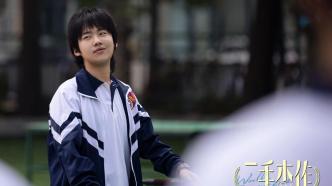
"A work can inspire people; single-handedly, they can revive literature and art!" This is the serious "joint recommendation" given by Xu Zheng and Ning Hao in the trailer of the movie "Second-hand Masterpiece" released on October 27. . This long-lost Beijing-style absurd satirical comedy has the same temperament as its director. A bit ruffian, a bit crazy, a bit sad.
"Secondhand Masterpiece" is inspired by the 2009 American movie "The World's Greatest Father". It tells the story of an underachieving son who has an accident and his literature-obsessed father ghostwrites a "suicide note." Unexpectedly, the article went viral, leaving him depressed. Zhi's father tasted fame and fortune for the first time, and then became obsessed with desires beyond his control. This absurd comedy full of irony has been an obsession for Wang Zizhao since he watched it when he was a college student.
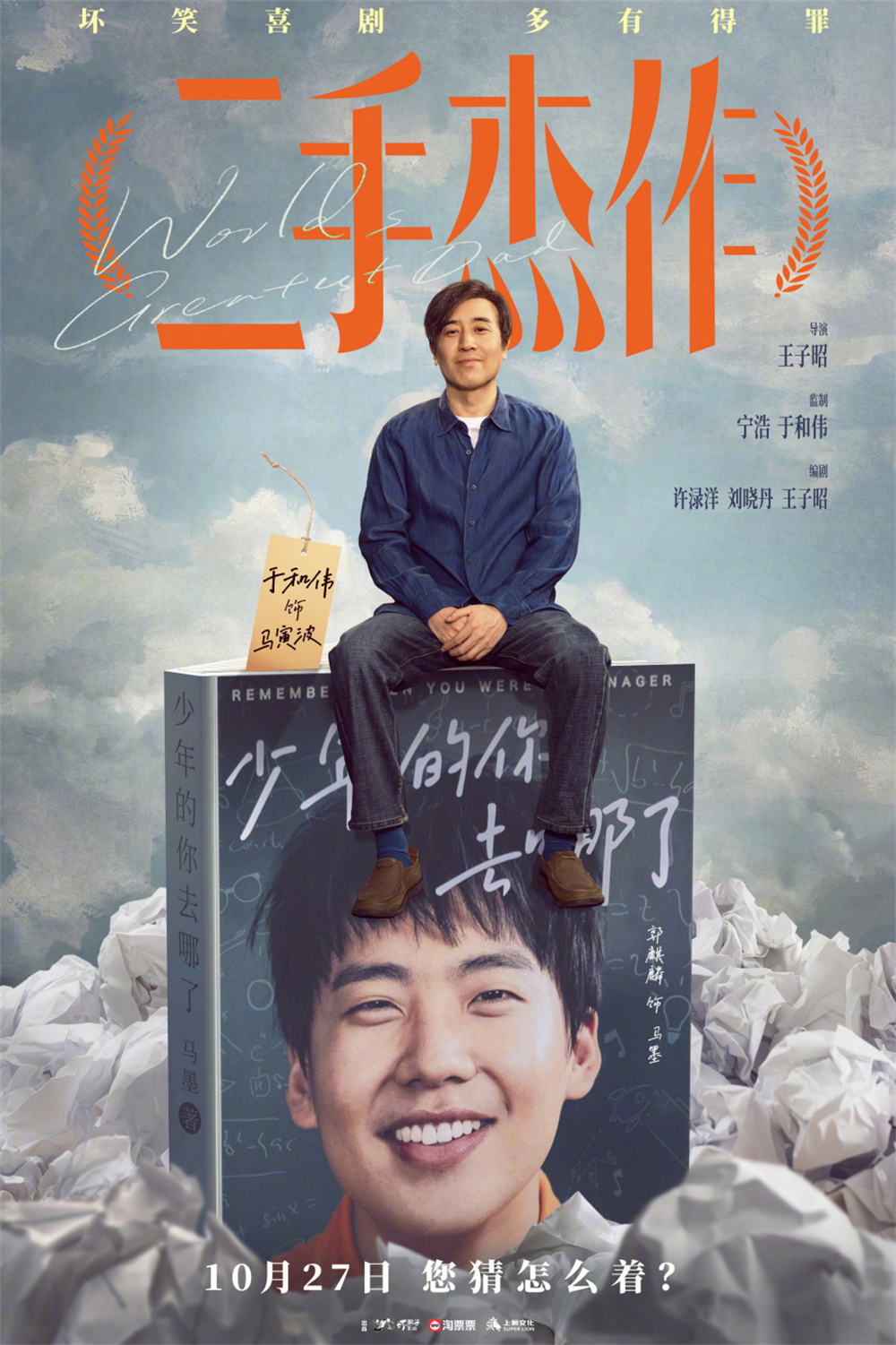
"Second Hand Masterpiece" Poster
In Wang Zizhao's adaptation, the absurd things that belong to the "first half" of life in the original work become the introduction, and the truth of life that the father faces after the son is "resurrected" is interpreted to be even more crazy and perverse.
As a new director who only made his feature film debut more than ten years after graduation, Wang Zizhao's growth was not the usual hard-working path of pursuing a dream, and was even a bit "messy". In the movie, the maverick Ma Mo and the depressed Ma Yinbo both have the shadow of Wang Zizhao himself.
When he was studying in the Directing Department of the Film Academy, Wang Zizhao was one of the more outstanding students. He would just "go with it" if he took courses that he was not interested in. Important professional courses and papers were highly praised by his teachers. At the time of graduation, he was a popular "emerging director". "Bad" and "Fearless" were shortlisted and won three awards for Best Film, Screenplay and Actor at the 4th Newcomer Film Festival. Such achievements serve as his "old capital". In addition to shooting some commercials many years after graduation, he has been "hanging out" for many years with the title of "potential new director" even if he has no works. He was selected into Ning Hao's Youth Film Network. Talent's "Bad Monkey 72 Changes" plan.
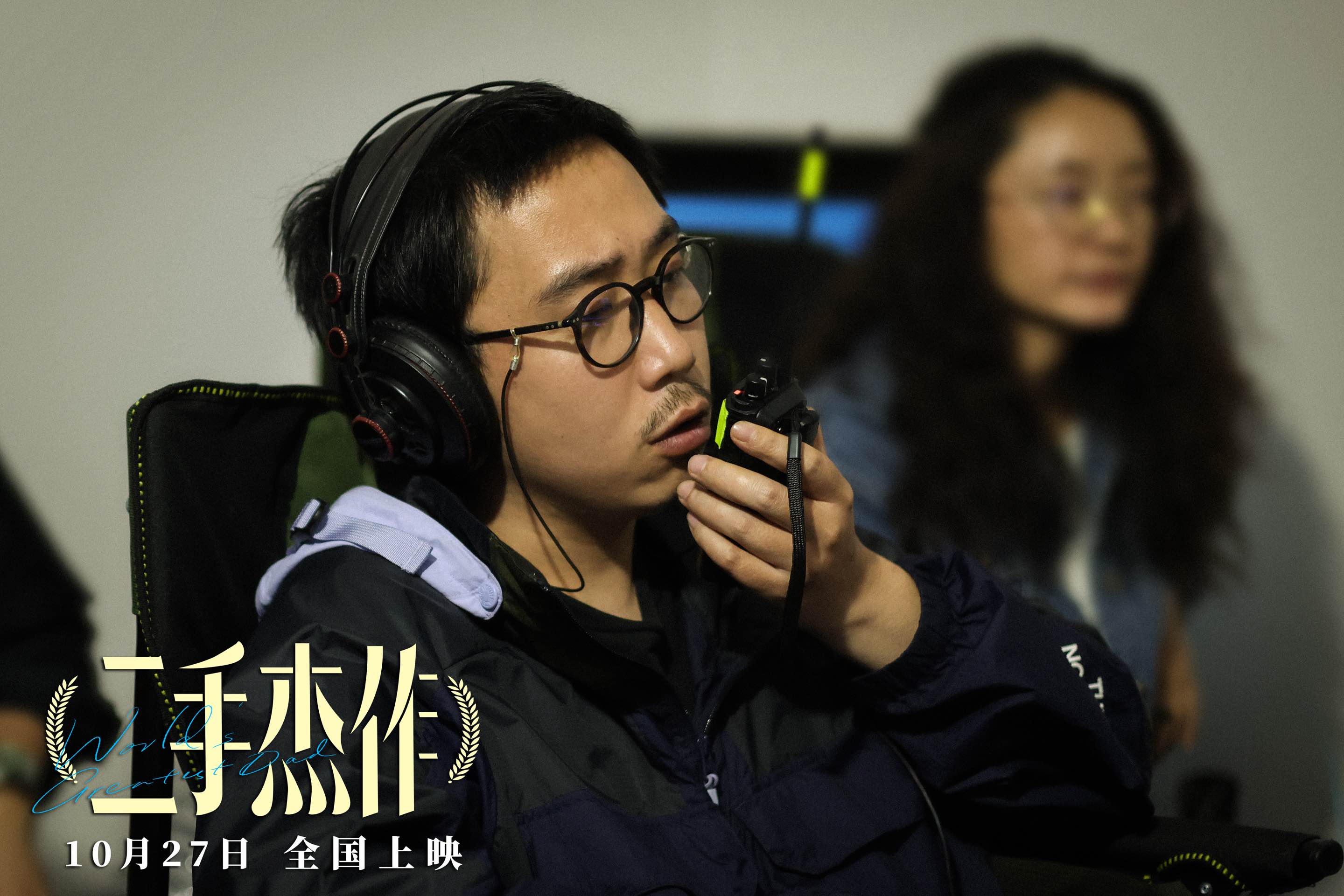
"Second Hand Masterpiece" director Wang Zizhao
The director of this summer's blockbuster film "All or Nothing", who is bidding for the Olympics, is Wang Zizhao's high school senior. Wang Zizhao was also influenced by him when he was admitted to film school. In the interview, he did not shy away from being a little anxious about being "scrolled" by his peers in the past few years. When younger directors also handed over their works one after another, their "social identity" as film directors was confirmed time and time again. The consciousness of being a "sincere creator" and an "intellectual at the primary stage" made Zizhao realize that his vanity was beginning to take hold.
He integrated his own understanding and examination into the characters, turned the discussion and confusion about talents and desires into the wonders of the film, and condensed his observations and satire on the cultural industry over the years into the absurd "god-making" movement. .
During the release of the film, Wang Zizhao accepted an exclusive interview with reporters from The Paper, talking about his own "second-hand" experience in adapting a "masterpiece", as well as the vanity and sobriety in the growth path of a new director.
【dialogue】
As a "director", I had no work or works for many years.
The Paper: As one of the first batch of directors to sign contracts for the "Bad Monkey 72" project, many of the films in this project took a long time to complete. What was the process like for you?
Wang Zizhao: I feel anxious because I have not had a “social identity” for so many years. When I graduated, no graduate could go directly to making movies. Making movies felt like it had nothing to do with me, and I wasn’t obsessed with it. Then after a few years of wandering around, I looked at all my peers around me and found that no matter what kind of job they were engaged in, they basically had a "social identity", no matter if they were white-collar workers, doing small business, or even if they were a micro-business... But I I have always been called "director" with an empty identity, but this director has no work, and I have not participated in any director-related work. After your 30s, stress and anxiety set in.
"Bad Monkey" actually signed a group of our pretty good graduates in those few years - everyone called them "potential young directors". But at that time, no one had made a film, so there was no one who came first. The question is who is higher and who is lower. Later, as time went by, everyone published works one after another, and the "comparison" and "vanity" at this time will also make you feel stressed. So when I actually started writing this project, I felt that the time was not even "ripe". It would be too late if I didn't make the project.
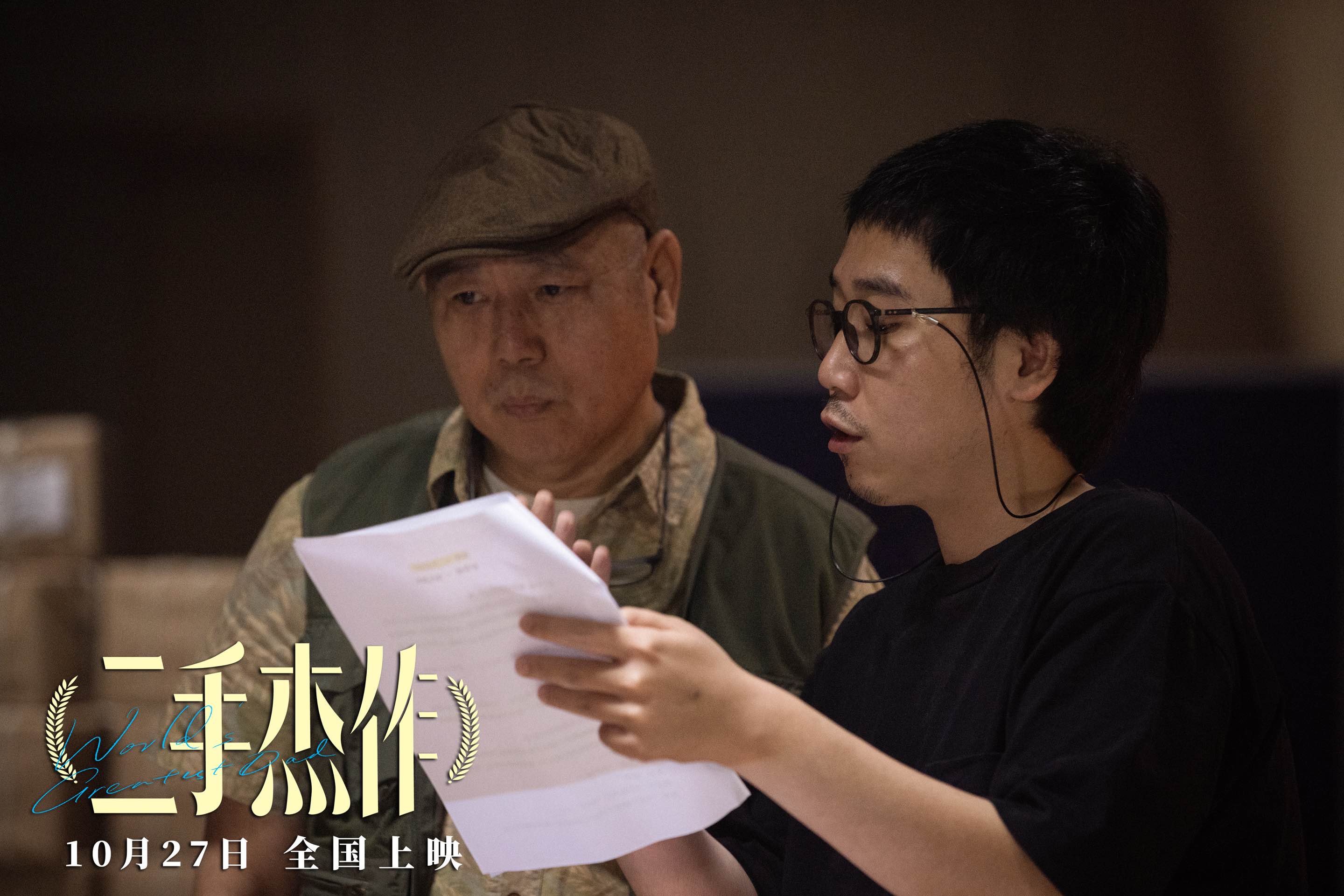
Wang Zizhao talked about the drama at the filming site
The Paper: Ma Yinbo has been in a mid-life crisis since the beginning. Does that kind of "vanity" anxiety also reflect your own portrayal in the industry where "newcomers are emerging" in the past few years? Has that last “reconciliation with yourself” happened in your actual life?
Wang Zizhao: Of course, I am troubled by this matter. As mentioned before, in the beginning, everyone was a new director, and no one had a chance to shoot, or no one could come out, so I just went and drank without any pressure. But just as you said, other new directors have come out and been seen by others. At this time, there will definitely still be some psychological imbalance.
Fortunately, whether as a sincere creator or as an "initial stage intellectual", I still have the ability to reflect and adjust. At the same time, I feel that vanity, greed, and laziness, these historically derogatory words in human history, may be something that is innate in everyone’s genes and are not easy to overcome. What you can do depends on your perspective. With the improvement of your understanding of the objective environment and yourself, you will become more and more able to control these things from affecting you.
As for "reconciliation", actually if this film hadn't been finished, I guess I wouldn't have reconciled now, but fortunately, my mentality is not that serious and I can still control it. After all, I am luckier than Ma Yinbo. I have no accidents or opportunities to be deceived by the world. I must have stayed in the mentality before his son had the accident.
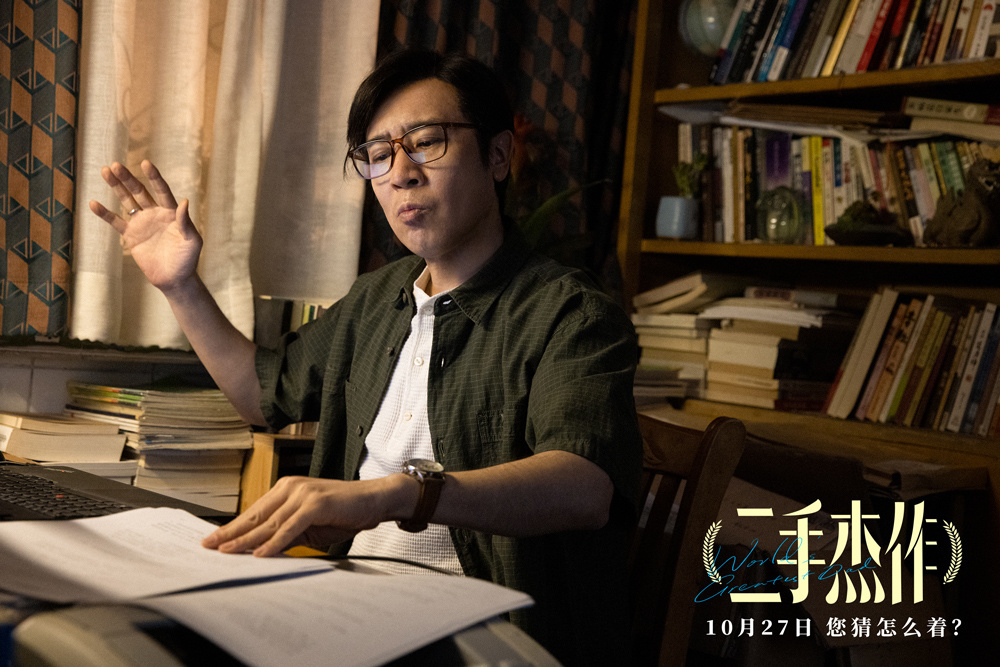
Ma Yinbo (played by Yu Hewei)
The Paper: In your definition of Ma Yinbo, is he really unrecognized for his talents, or is he just a mediocre person?
Wang Zizhao: In my mind, Ma Yinbo's ability may indeed be a little better than that of ordinary people, but compared to a real writer, his ability should still be lower than that. For this character, it is indeed a review of myself.
The Paper: But the books he published in his son’s name did bear the test of the market and were sought after by thousands of people. From a practical logic point of view, this is exaggerated and absurd. How do you balance reality and absurdity when handling the entire play?
Wang Zizhao: The popularity of the book may be a point that I want to satirize. The success of many people is that others don’t look at your ability and ability, but look at your gimmick and the story behind you. Of course, some people think that this thing is unrealistic and that is an exaggeration. I can only say that in my world, these things are realistic and are what I have seen and experienced. But I can also understand the voices of others who say that this is unrealistic. After all, everyone’s experience is different and their perception of the world is also different.
Good actors are the mainstay
The Paper: Teacher Yu Hewei’s role is extremely important in the entire film. How do you discuss this character? What inspiration does he bring to you?
Wang Zizhao: First of all, he created a basic foundation. Without him, this character would not be established. He is the pillar and soul of the entire film, and plays the role of a mainstay. I think it is a perfect interpretation and completion of the shaping of this character. . At the same time, he not only completed the performance in the script as an actor, he even provided a lot of valuable opinions on the creation of my story, which has now proven to be very effective.
For example, when Ma Yinbo fell from the rooftop to save the little girl at the end, he came up with this idea. The original script only wrote about a situation. When he wanted to commit suicide, he met this girl by chance. In the process of persuading the girl, he persuaded him to understand, but there was no dramatic fall at the end. It was him who proposed to join the fight. of.
The Paper: He almost changed the ending of the character, and directly gave a climax scene. As a director, what convinced you to accept such a big change?
Wang Zizhao: Yes, I think although he has never been a director, he has participated in many projects. He told me that at this moment you have to give the audience some external stimulation. Our film is actually quite literary. In addition to following logic and heart, it also has to have an action climax. At first I thought I wasn't sure it needed to be so dramatic. But he understands the audience better than I do. I didn't know the audience needed this, but now it turns out that thing really works.
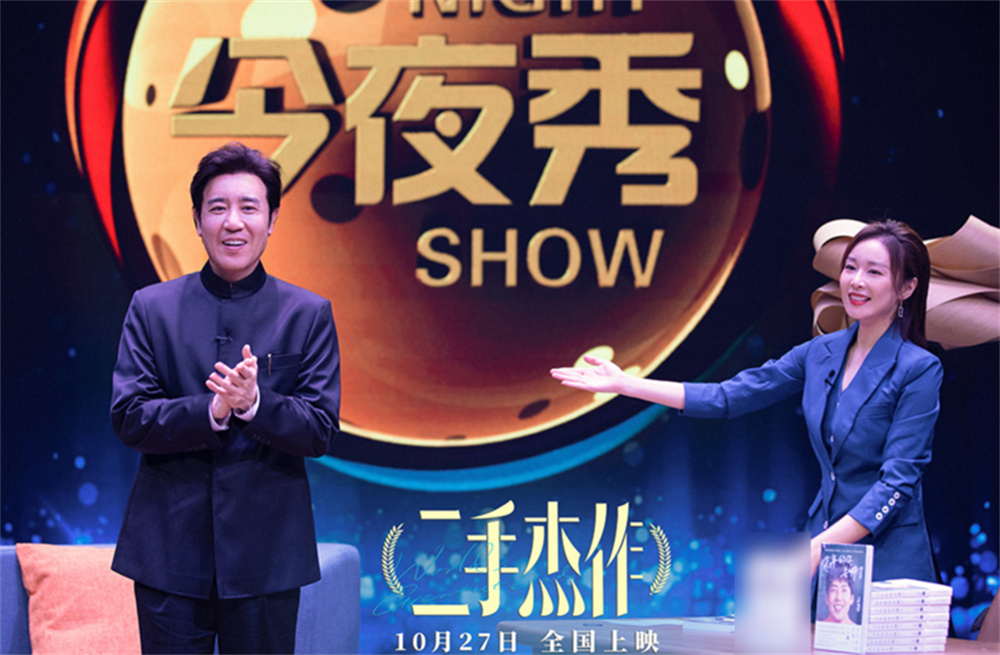
Stills from "Second Hand Masterpiece"
The Paper: There are many scenes in this movie that are one-man shows by teacher Yu Hewei. There is no dialogue and no very clear dramatic conflict. He is acting in a certain state of competition with himself. In terms of scheduling and design of those scenes, what are you? How was it considered?
Wang Zizhao: I think these scenes are "good moments" for me. When Teacher Yu is alone in that mood, I just quietly watch his performance. He is responsible for the interpretation, and I am responsible for "holding" him down. The real heavy lifting lies with the teacher. For example, there was a scene where it was written in the script that "one person writes like a god assisting me". I told him the background music I envisioned, and he was the one who went crazy. He really typed it to create a sense of madness. The good actor completely put it in my mind. The picture is presented, I really thank Teacher Yu.
The Paper: Guo Qilin’s actual age was to play the role of a high school student. Did you have any concerns at the beginning?

Ma Mo (played by Guo Qilin)
Wang Zizhao: No, because when I met him, I really thought he was too small. When I met him for the first time in 2020, I asked him how old he was. Sometimes I see him look more mature if he wears a slicked back or parted hair in variety shows. In real life, if he wears a hat or pulls his hair down, he still looks like a child.
Beijing-style comedy was once the mainstream
The Paper: I noticed that when you were studying, you chose the direction of documentaries, and the style of the feature films you shot was very distinctive and "flying". Did documentaries have any impact on you?
Wang Zizhao: Documentaries have little impact on me. I didn’t watch many documentaries when I was in school. The directing department of the film school has a specific direction for admissions every year. As long as I take the exam that year, I have no other choice. But after entering, the courses taken by each class of students in each direction are actually the same, that is, the documentary course will take two semesters longer than that in other directions, but this is not my interest, I didn’t take it well, and I didn’t shoot much. , of course there is an aesthetic influence from realism, but this is also the consistent aesthetic direction of the film academy.
The Paper: I saw in a previous interview that you said that your comedy was influenced by Huang Jianxin. This statement is quite rare. Usually many people will say Stephen Chow, Ning Hao and the like.
Wang Zizhao: I think it may have something to do with me being from Beijing. In addition to Huang Jianxin, there are also works by Feng Xiaogang, Chen Peisi, and Liang Zuo. I have been influenced and influenced by these works since I was a child. Naturally, the concept of comedy in my mind is like that. This kind of "straightforward" comedy style has become more and more popular in recent years. I think their source should be Stephen Chow. In principle, it is some nonsense, but to be honest, I didn't really understand it when I watched Stephen Chow when I was a child.
When I started writing scripts, my language habits were so natural. Once you asked me to start filming or once I started writing, I had no choice and just wrote like that. We had a discussion before filming. Some people said that if you write everyone's lines the same now, it doesn't seem to be conducive to the difference between the characters. I thought for a long time and I couldn't solve it. I said forget it, then don't solve it. Just leave it here.
Beijing-style comedies may have been a little depressed in recent years, but if you think about earlier, in the late 1990s and early 21st century, the main say in comedy was still in the hands of this group. I think audiences from all over the country watched Those are all the same. It is not a niche comedy method. In fact, I did something that was very mainstream 20 years ago.

Pan Dongni, left (played by Ni Hongjie)
The Paper: I saw you give an interview before, and you said that you presupposed from the beginning that this would probably not be a movie that the audience would find particularly funny. Are you worried that comedy is “not funny”? Will you do any "preliminary research" such as "laugh point evaluation" at the beginning?
Wang Zizhao: "Bad Monkey" is a company of craftsmen, not a big data company, so we must respect, protect and support creators.
I think it’s not important to me what kind of jokes the audience expects, or to be more honest, I can’t help it, because I’m not that kind of “professional director”. If you have to say something that the audience likes, but It’s really not something I’m good at or understand, so I can’t do it. This is not allowed due to my ability, and it is not a matter of attitude, but I will also think of ways. For example, if there are limitations in my personal style, I will see if I can make it more compatible in terms of story.
But I also know that people who understand this thing today definitely understand it, but there may be a group of people who don’t understand it for various reasons, and I can completely understand it. Don't talk about filming a movie, you say I go to the south now, drink and joke with my friends, maybe they don't understand the joke at the table, this is quite normal.
Absurdity shines into “realism”
The Paper: This is an adaptation. The original movie "The Greatest Father in the World" was filmed more than ten years ago. Today, when the social network environment has undergone greater changes, what are the new aspects of the adaptation of this movie? practical significance?
Wang Zizhao: The world may have changed a lot in the past ten years, but the principle has not changed. Needless to say, during this period, the entire progress of human history has been based on a similar principle, so we We still use big concepts like "media to create gods" or "rabble" to create a story that becomes popular overnight, but the materials we use are more current. And to be honest, when I was working on the script, I was still a little "outdated" due to my own reasons. Later, I realized that some of the material might not be so "current" anymore, because we were still talking about publishing, literature and so on.
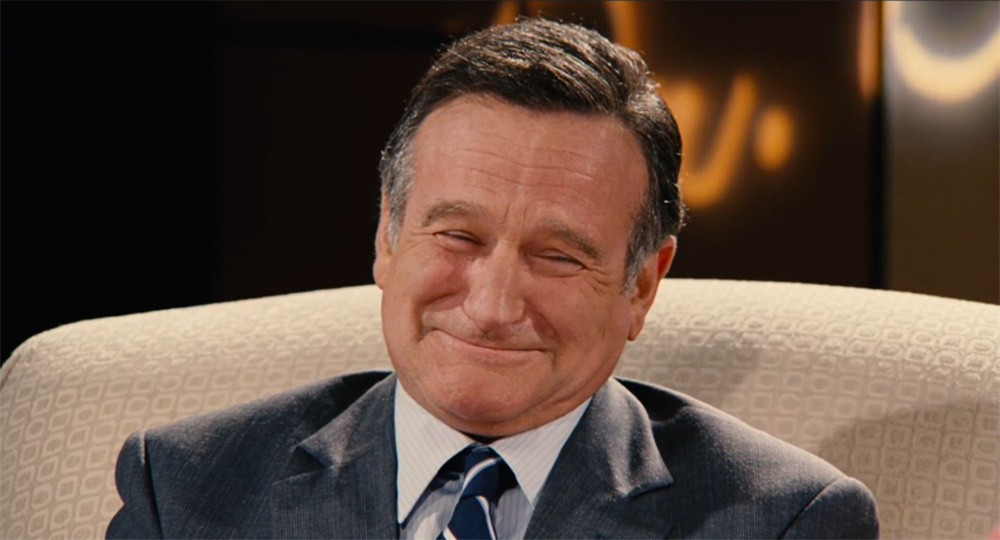
Stills from "The World's Greatest Father"
We considered it when we were working on the script. The screenwriter said in a meeting that the things you wrote at this time seem to be outdated, and now we mainly rely on short videos. I thought about it for a long time and made a big decision, but I still feel that I really don’t understand the new things. , so I decided to give up on unfamiliar things and not follow this trend. The film was set around 2016. If you think this film still feels relevant to the present, it's because the principles of the world have not changed, but now no one has made a god of young literary geniuses.
The Paper: You explore popular culture very sharply in your movies, but are you someone who keeps a distance from trends?
Wang Zizhao: I'm just not interested. It seems that my last interaction with the online world was basically in the era of blogs, such as Renren.com, and I don't understand the latest short videos and live broadcasts. My understanding of information dissemination is still stuck in the era of text dissemination. Probably after graduating from college in my 20s, I began to feel a little boring about the information in the outside world. At that time, I may have felt that individual emotions were more important, so now If you ask me to take the initiative to catch up with those trends, I will not be able to catch up. Now, because of the release of the movie, it seems that I have to get in touch with various media again. Passive contact seems to be okay.
The Paper: The movie also talks about the relationship between the work and the public. When the work and the author face the public, they may transcend themselves and carry the expectations of others and even certain value demands. Did the reviews and situations you faced after the film was released give you new inspirations and thoughts on this topic?
Wang Zizhao: I feel very happy, because I think a work needs to be verified. Only when it meets the audience and the audience judges and evaluates it can it be called the "completion of the work".
I always compare directing to being a cook. I am a cook. I made a dish and wanted to invite you, the audience, to taste it. So you told me that the dish was salty, sweet and bitter. Or how the plate was arranged, I was very happy, because we were all talking about food. But now some of the reactions and sounds can be said to completely echo the theme of the movie. On the contrary, it makes me feel that making movies is particularly good. It allows me to really see the current world. Some of the situations in the movie are the same in real life, which shows that our film is really "realistic".
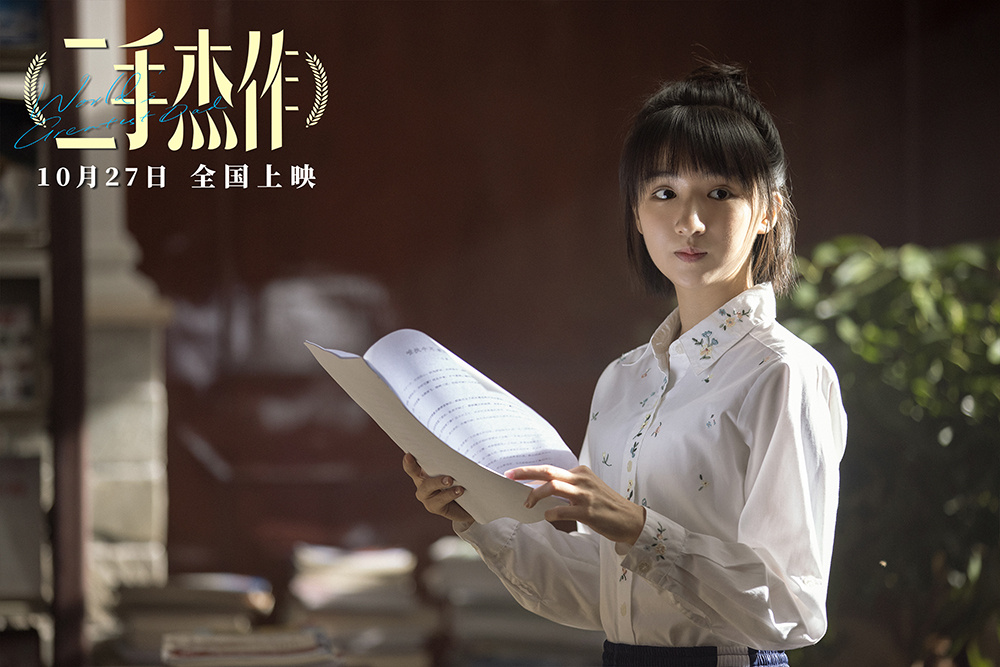
Xu Sisi (played by Xu Enyi)
The Paper: "Secondhand Masterpiece" is also seen as being closer to director Ning Hao's early style in the "Bad Monkey" project. Will you choose the satirical comedy genre as your "track" in the future? Doing "offensive" comedy now has more and more boundaries and constraints. Does this bother you?
Wang Zizhao: Now my comfort zone is here, and I still hope to run on this path in the short term. But one day Baobuqi will undergo a qualitative change, and my ability will increase significantly. Maybe I will expand it again.
When I reached my 30s, I not only made peace with my mediocre self, but I also made peace with this weird world. I feel like I’m just a cook, and I just want to cook. I don’t open a restaurant, and I don’t pay attention to customer flow. Now that I’ve tasted this dish and looked at the people eating it, I’ve basically reached the point where I It’s my wish, and there’s no shame in my craftsmanship, so I’m quite satisfied.


